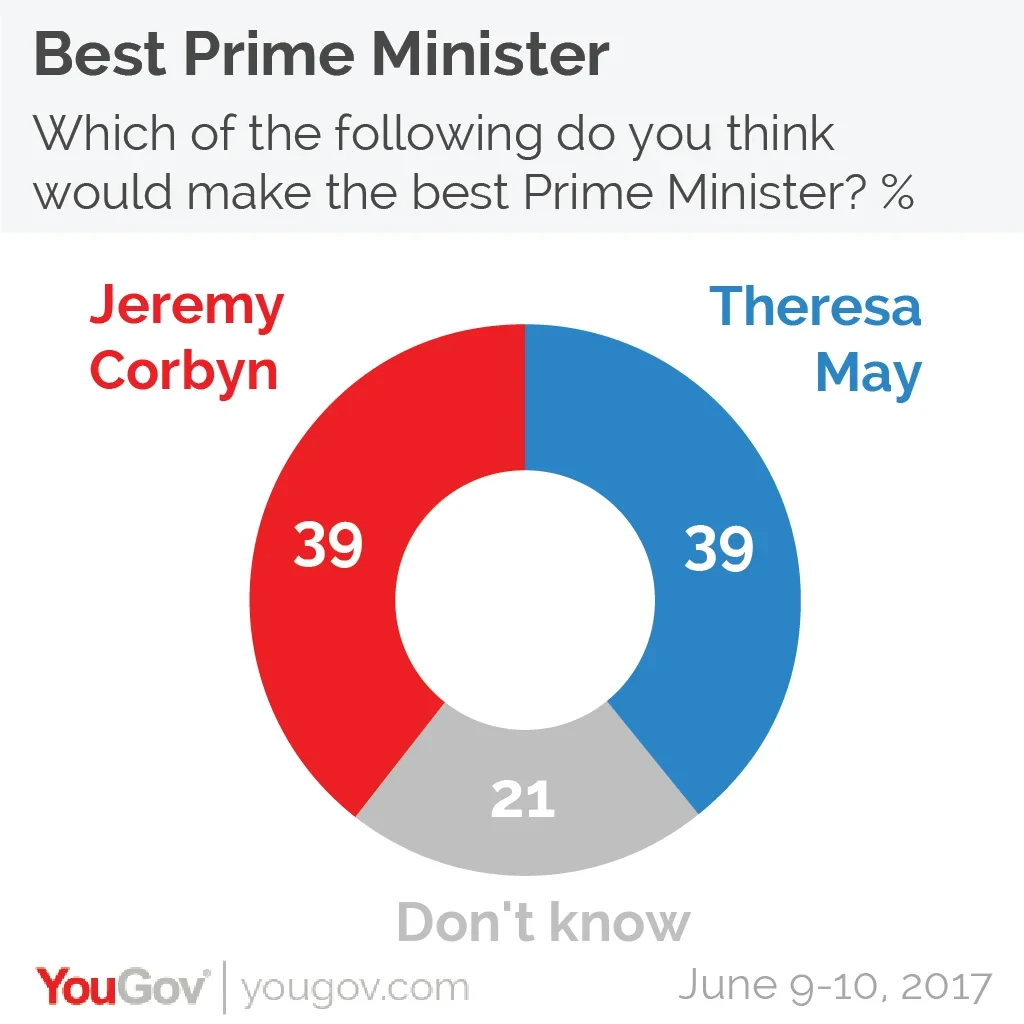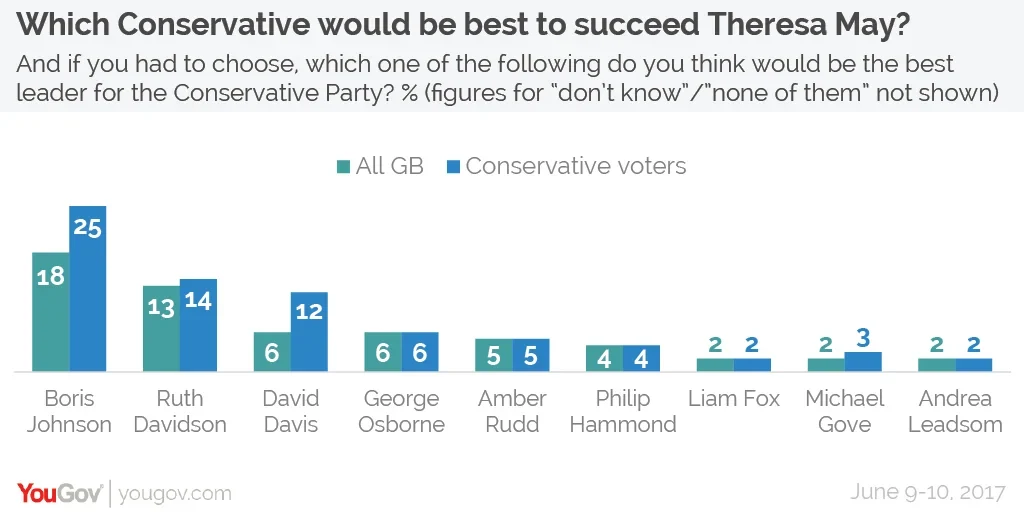YouGov’s first political survey following the general election finds Corbyn and May tied on 39% when it comes to who Brits think would make the best Prime Minister
Having been consistently ahead for the entirety of her premiership, Theresa May now finds herself neck and neck with Jeremy Corbyn on who would make the best Prime Minister (39% each).

This represents the continuation of a remarkable turnaround in fortunes for the PM and the Leader of the Opposition - representing both Corbyn's best-ever performance and May's worst. As recently as April, around half of Brits selected Theresa May as the best Prime Minister and less than a fifth picked the Labour leader (a score he had occupied ever since May moved into Downing Street).
More than four in ten Brits (41%) believe that the Conservatives would have done better under a different leader, although this falls to 32% among those who voted for the party last week. By contrast, only 24% of people think that Labour would have done better under a different leader than Corbyn – and 31% think they would have done worse.
The poor Conservative performance has ignited speculation that May could be subject to a leadership challenge later in the year, with Boris Johnson the most likely challenger (although in public the Foreign Secretary has backed the Prime Minister).
Boris is certainly the most popular choice among the public, coming top of a list of possible successors to May at 18%. The only other potential successor who also does well is Ruth Davidson, currently leader of the Conservative Party in Scotland (and not presently an MP), who is widely seen to have had a good campaign and is polling at 13%.

Davidson’s public profile is, however, far less developed, with 46% of people saying in a separate question that they didn’t know enough about her to answer whether they thought she would be a good or poor leader (that figure for Johnson was just 11%).
What comes next?
The aftermath of the election sees the Conservatives without a Commons majority, and the party is currently in talks with the DUP over a confidence and supply agreement. A quarter of people (25%) would actually rather see the two parties form a coalition government (and this is the favoured choice of the majority (53%) of those who voted Conservative in the election).
An almost identical proportion of people (26%) think the Conservatives should operate as a minority government trying to strike deals with other parties on individual issues. A further 33% of people think the Conservatives should step aside entirely and let Labour try and form a government – unsurprisingly this is the favoured option of Labour voters (68%).
Should Conservative attempts to form a government fail it is unlikely that Labour would be any more successful given the parliamentary arithmetic, meaning that a second general election would need to be called. More than four in ten Brits (43%) say they would support holding another general election in the autumn (particularly Labour voters, at 65%), however only a third (33%) actually believe that a second election is a likely occurrence.
Photo: PA











